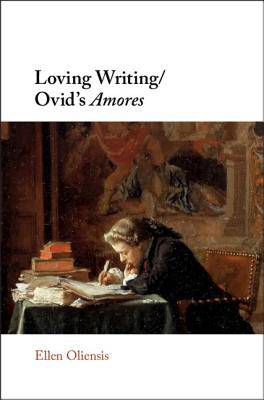
- Afhalen na 1 uur in een winkel met voorraad
- Gratis thuislevering in België vanaf € 30
- Ruim aanbod met 7 miljoen producten
- Afhalen na 1 uur in een winkel met voorraad
- Gratis thuislevering in België vanaf € 30
- Ruim aanbod met 7 miljoen producten
Zoeken
Omschrijving
This book offers a fresh reading of the Amores centered on the aggressive, opportunistic, endlessly fluent, pleasure-seeking character, the poet-lover of the collection, here called Naso. Resisting the scholarly tendency to segregate the poet from the lover, Ellen Oliensis teases out the compromising affiliations between Naso's most 'poetic' performances and his seamy erotic adventures and shows that his need to write the script of his own subjection, far from delegitimizing his desire, tallies with other features of his generally masochistic profile. The book concludes with an exploration of the masochistic pleasures of the elegiac writing project as such, thereby effectively re-uniting Ovid with his surrogate within the collection.
Specificaties
Betrokkenen
- Auteur(s):
- Uitgeverij:
Inhoud
- Aantal bladzijden:
- 208
- Taal:
- Engels
Eigenschappen
- Productcode (EAN):
- 9781108482301
- Verschijningsdatum:
- 22/08/2019
- Uitvoering:
- Hardcover
- Formaat:
- Genaaid
- Afmetingen:
- 211 mm x 241 mm
- Gewicht:
- 453 g

Alleen bij Standaard Boekhandel
+ 251 punten op je klantenkaart van Standaard Boekhandel
Beoordelingen
We publiceren alleen reviews die voldoen aan de voorwaarden voor reviews. Bekijk onze voorwaarden voor reviews.











